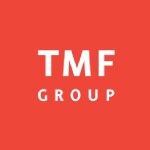In a period where COVID-19 has grabbed the headlines and other news has had less of a focus, time is now of the essence for companies to ensure compliance with these new and highly complex taxation requirements. The new regulations apply from July 1 2021.
Previously, foreign vendors with no physical presence in Canada who sell digital products or services to consumers in Canada generally do not have to collect GST/HST – taxes that Canadian vendors selling these same products and services must charge. This has resulted in Canadian vendors’ products and services being more expensive and therefore less competitive compared with their foreign rivals. The new regulations seek to address this situation by also making foreign companies subject to GST/HST.
The new regulations demonstrate the Canadian government’s intention to create a framework for fair competition, while further governing the operation of the country’s digital economy.
Michael Lichti says “As is the case in a number of countries, the Canadian government is stepping into the online world with regards to taxation. This legislation is meant to level the playing field for Canadian companies that operate in these spaces, so that they are not at a cost disadvantage versus their foreign competitors.”
The new regulations relate to:
- Cross-border digital products and cross-border services;
- Goods supplied through fulfillment warehouses in Canada; and
- Platform-based short-term accommodation.
Cross-border digital products and cross-border services
Goods supplied through fulfillment warehouses in Canada
Platform-based short-term accommodation
The new regulations pertain to digital platforms – websites, mobile apps, electronic portals or any other similar electronic interface. Rates will be charged depending on the province of the consumer. The frequency of filing will depend on the volume of sales to Canadian consumers.
Talk to the TMF group
Michael Lichti
Country leader (Canada), TMF Group
E: michael.lichti@tmf-group.com












